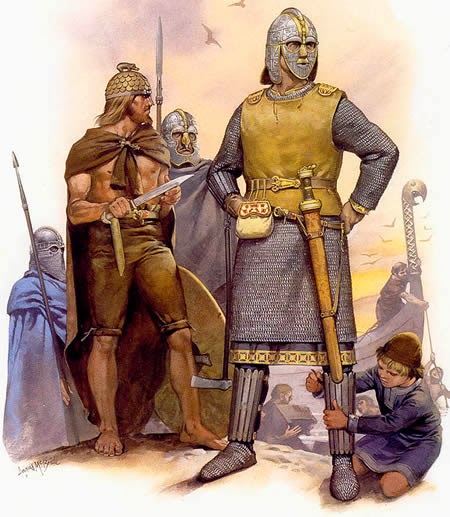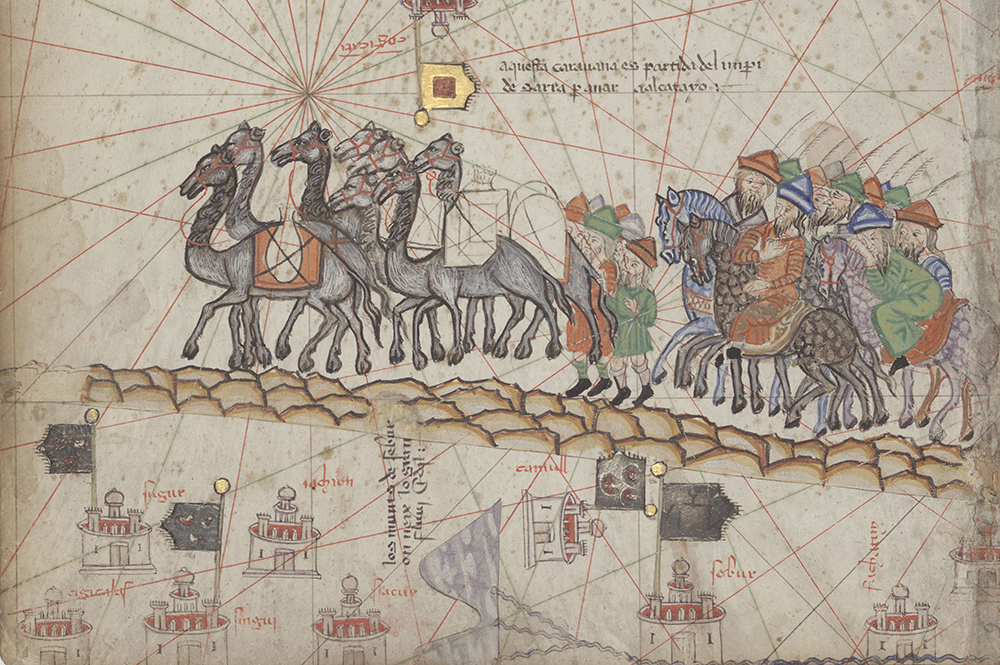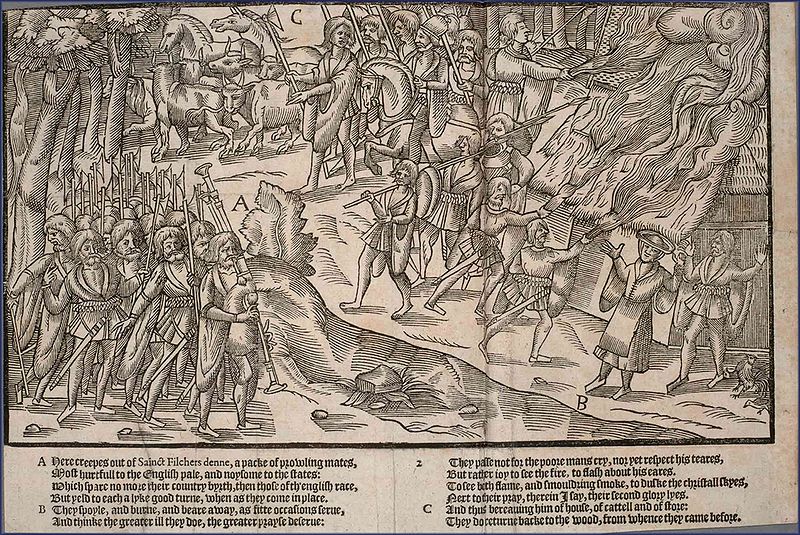Lone Wolf
Deity
- Joined
- Dec 4, 2006
- Messages
- 9,908
This is a story of a Civ3 Monarch game, as the English. My own mod that changes some lategame non-mech unit values and changes armies to capacity 1 + a hp bonus, allowing the AI to use them.
The ancient Anglo-Saxons arose in the lands of a valley between ranges of rolling hills. Although cold, the land was still capable of supporting agriculture, the hills contained gold ore, and the waters of the southern seas provided some fish and crabs.

Soon after the formation of the first Anglo-Saxon settled culture, these people came into contact with the Indus river culture to the north. Archaeological digs testify that around that time, Anglo ceremonial burial practices undergo a drastic change in sophistication and complexity, signifying increased cultural exchange between the two peoples.

Later legends tell of a marriage between the Anglo-Saxon High Chieftain and the daughter of the small Iberian tribe, assimilating the Iberians.

To the north of Indus, past the sugarplant-rich plains and the deserts, lay the sophisticated ancient Byzantine culture.
Around 2550 BC, Anglo-Saxon settlements appeared in the wheat-rich York. An old epic tells how chieftain Winfred, discontent with the despotism of the old High Chieftain, left to found the York settlements.

First bronze tools used by the Anglos appeared to have been of Byzantine manufacture. It, however, didn't take a long time to them to acquire the means of bronze manufacture themselves.

Prevented by the Indians from settling to the warmer North, the Anglos were forced on a push to the cold, but game-filled southwest, where they defeated the Vandal tribes. Tales of High Chieftain Alfred, uniter of the tribes and inventor of the fearsome bows, continued to be popular even in medieval times.

The same bows proved to be decisive in the Anglo-Saxon conquest of India. The clubs Indian warriors used were nothing compared to Anglo bows. The battlefield must've been strewn with Indian bodies, pierced by this technologically advanced weapon.

The razing of Madras helped High Chief Harold to consolidate his authority over the other chiefs. Even more significantly, he abandoned the old title of High Chief, for a new title of King, inspired by the Indian rajah.


A later depiction of Harold, the first King.
The conquest greatly changed the initially primitive Anglo-Saxon chiefdom. Not only the Anglos gained the knowledge of Indian masonry and iron working, the consolidation of the conquerors and the conquered resulted in the new ethnic identity of the English people, as opposed to the previous loosely united tribes.

Despite the destruction suffered during the conquest, Delhi quickly recovered as an urban center, while the Byzantines claimed Nicaea at the site of the old Madras.

Constantinople was described by the English as the most beautiful city of the world. Nothing could compare with it neither in England, nor in the Western lands of the Ottomans and the Celts.


Constantinople. Its Hanging Gardens, temples, hippodromes and marble walls impressed English travellers and merchants.
The ancient Anglo-Saxons arose in the lands of a valley between ranges of rolling hills. Although cold, the land was still capable of supporting agriculture, the hills contained gold ore, and the waters of the southern seas provided some fish and crabs.

Soon after the formation of the first Anglo-Saxon settled culture, these people came into contact with the Indus river culture to the north. Archaeological digs testify that around that time, Anglo ceremonial burial practices undergo a drastic change in sophistication and complexity, signifying increased cultural exchange between the two peoples.

Later legends tell of a marriage between the Anglo-Saxon High Chieftain and the daughter of the small Iberian tribe, assimilating the Iberians.

To the north of Indus, past the sugarplant-rich plains and the deserts, lay the sophisticated ancient Byzantine culture.
Around 2550 BC, Anglo-Saxon settlements appeared in the wheat-rich York. An old epic tells how chieftain Winfred, discontent with the despotism of the old High Chieftain, left to found the York settlements.

First bronze tools used by the Anglos appeared to have been of Byzantine manufacture. It, however, didn't take a long time to them to acquire the means of bronze manufacture themselves.

Prevented by the Indians from settling to the warmer North, the Anglos were forced on a push to the cold, but game-filled southwest, where they defeated the Vandal tribes. Tales of High Chieftain Alfred, uniter of the tribes and inventor of the fearsome bows, continued to be popular even in medieval times.

The same bows proved to be decisive in the Anglo-Saxon conquest of India. The clubs Indian warriors used were nothing compared to Anglo bows. The battlefield must've been strewn with Indian bodies, pierced by this technologically advanced weapon.

The razing of Madras helped High Chief Harold to consolidate his authority over the other chiefs. Even more significantly, he abandoned the old title of High Chief, for a new title of King, inspired by the Indian rajah.


A later depiction of Harold, the first King.
The conquest greatly changed the initially primitive Anglo-Saxon chiefdom. Not only the Anglos gained the knowledge of Indian masonry and iron working, the consolidation of the conquerors and the conquered resulted in the new ethnic identity of the English people, as opposed to the previous loosely united tribes.

Despite the destruction suffered during the conquest, Delhi quickly recovered as an urban center, while the Byzantines claimed Nicaea at the site of the old Madras.

Constantinople was described by the English as the most beautiful city of the world. Nothing could compare with it neither in England, nor in the Western lands of the Ottomans and the Celts.


Constantinople. Its Hanging Gardens, temples, hippodromes and marble walls impressed English travellers and merchants.










































































